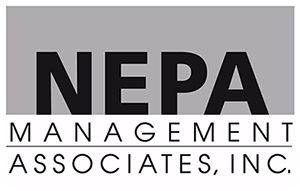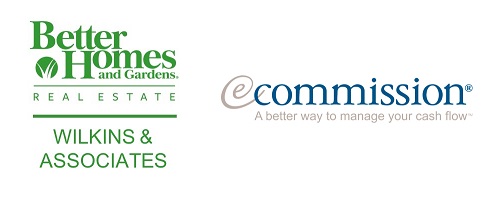A great article I thought everyone would enjoy.
In the past several weeks I have found myself in the position of providing guidance to several clients who were having tenant issues. While I enjoy engaging their issues and helping them to formulate the best approach to their respective situations, the part I have a tough time with is that these clients have paid property managers who should know this stuff. Most importantly, these property managers should be ready, willing and able to act to the benefit of the property owner (my client) to resolve any issues without the client having to guide their actions, or in one case, demand specific actions be taken!

For many real estate investors the specter of using a property manager is like
having to visit the dentist. It is one of their least fun things to do. And yet a good property manager can ensure your monthly cash-flow while a poor one will almost drive you to bankruptcy.
Back in September of last year I wrote an article titled, So, You Want To Be A Landlord. As part of the article I provided several recommendations regarding those critical items I believe would help every investor to be successful as a landlord. Item #5 provided this recommendation…
“Don’t ever forget this one: no one, and I mean no one will ever manage your properties and be more concerned about the monthly cashflow outcomes then you. Where am I going with this? If you have to use property managers, spend as much if not more time screening themas you would a prospective tenant. It never ceases to amaze me how most property managers always seem to divert your monthly cashflow to their pockets. It is almost like magic… but it isn’t! Don’t assume anything with property managers and you should do OK.”
Well… that is about as direct a statement as could be made about your relationship with any property manager. Wouldn’t you agree?
So, assuming there were at least a few decent property managers in this country, how would you find them and what criteria should you use to select them?
The obvious way to find those few property managers that really will take care of your portfolio is to find them based on the experience of others. If you have been attending your local real estate investment association meetings you could get recommendations from other investors. In many larger communities there are landlord specific associations called Property Owners Associations. Obviously this is a group of property owners and they will have very strong opinions regarding who the good property managers are. There most likely will be members of the association who are currently providing property management services.
If all else fails you can always do what I did. Learn the property management business from the ground up and then when your are ready to turn management over to a property manager, find someone who is trying to get into that business and train them. Once they are trained this approach provides you with the comfort that they will pretty much run their business just like you would – assuming you did it right — this approach works like a champ.
OK, lets say that your got a couple of recommendations for the proverbial “good” property manager and you now have to go through the selection process. What should you be looking for?
8 Tips for Hiring the Best Property Manager for Your Real Estate Portfolio:
1. The first thing I always want to know is how many properties (units is a better measure) are they managing. This is followed up with how many employees are managing these units. Here is what I have found based on our experience building our property management capability internally and then handing the entire portfolio over to property managers: a trained employee with the right tools and proven processes can manage between 30 and 40 units – assuming the accounting function is not included. So, if you are qualifying a property manager and they have no employees and are currently managing 37 units and you want to hand them 7 more, how good do you think their service to your portfolio will be?
2. Do they own any rental properties themselves? For me this can be a deal breaker! Here is what I have experienced: while it may seem like a benefit for a manager to own properties because they can better relate to what an investor experiences, I see it differently. The way I see it is my properties and my tenants are in constant competition with the managers and their properties. If the manager has a vacancy at the same time you do, how can you know that your property will be filled first? You don’t!
3. A critical component in managing both properties and tenants is getting into those properties on a routine basis. As part of your discussions with prospective managers, you want to get a commitment from them how often they will conduct formal inspections of your properties. In some cases, managers will be very accommodating. In most, however, they will balk at this requirement or use it as a way to increase the fee they will be charging. I am not too impressed with property managers who believe that conducting routine property inspections is an extra – not part of their normal package of services. I would be very leery of this type of property manager.
4. During the discussions if you find that the property manager is constantly cutting you off, or trying to finish your sentences for you, you will be in trouble if you hire them. Any time you have an issue or question about your investment you will get the same treatment. The best managers are those who know who their clients are and are constantly looking for way to make sure those clients are happy.
5. The number of automated tenant management systems on the market can be overwhelming. The good news it that there are just a handful that really matter. You want to make sure that the property manager you select is using a quality property/tenant management tool and that they can provide samples of output reports from this system during the interview. If they don’t use software to improve efficiency or hesitate to share reports with you, your experience may be less then profitable.
6. Most property managers charge between 7% and 10% of the rents for managing your properties. Be sure that you know what that percentage is based on. Some managers will require that you pay them the agreed percentage on the total rents that COULD be collected whether they are collected or not. That is a non-starter for me. It would be a darned cold day in you know where, before I ever paid someone for rents they didn’t collect. It should be for you also.
7. Be sure that you know how a property manager will address maintenance issues. There are a variety of ways you as a property owner will pay for getting maintenance issues resolved. You can expect that the property manage will want to make maintenance decisions (spend your cash-flow) up to a certain dollar value amount before they have to obtain your permission. I never let that amount exceed $250. You shouldn’t either. Also, many property managers will add a 10% fee on top of the invoice, and while it is often times hard to find a manager who doesn’t make this a non-negotiable requirement, I would still negotiate to get that item waived.
8. Regarding that software I mentioned in item #5 above, make sure that the property manager commits to providing reports to you no later then the 6th day of each month and that your portion of the rents are paid to you at that time as well. And if you don’t receive those rents from the manager by the 6th, go camp out on their doorstep! I’m not kidding!
Well, this is turning into a mini-course and I am sure there are several more items that could be added. If you have additional items which you find critical to selecting a property manager please add them to the comments below.

